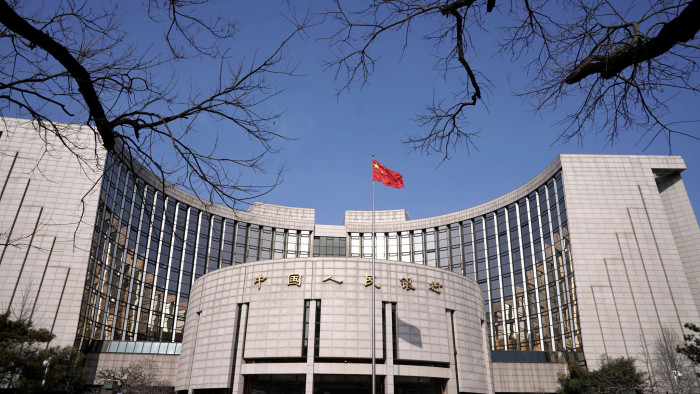Patents reveal extent of China’s digital currency plans

Roula Khalaf, Editor of the FT, selects her favourite stories in this weekly newsletter.
The People’s Bank of China has filed more than 80 patents related to its secretive plans to launch a digital currency, according to new research that shows the extent of Beijing’s ambitions to digitise the renminbi.
The patents, seen and verified by the Financial Times, include proposals related to the issuance and supply of a central bank digital currency, a system for interbank settlements that uses the currency, and the integration of digital currency wallets into existing retail bank accounts.
Uncovered by the Chamber of Digital Commerce, their contents shed light on Beijing’s mounting efforts to digitise the renminbi, which has sparked alarm in the west and spurred central bankers around the world to begin exploring similar projects.
“The theme is that China has made massive investments and are taking this very seriously,” said Perianne Boring, president of the chamber. “That is drastically different from the United States’ approach and this just highlights that.”
In 2014, China launched a project dubbed DC/EP — or Digital Currency/Electronic Payments — with the aim of partially digitising China’s existing monetary base, or cash in circulation.
Several of the 84 patents reviewed by the Financial Times indicate that China may plan to algorithmically adjust the supply of a central bank digital currency based on certain triggers, such as loan interest rates.
Some outline mechanisms to allow customers to make deposits with their existing banks and then exchange that for digital currency, while interbank settlement and clearing can potentially be sped up behind the scenes.
Other patents are focused on building digital currency chip cards or digital currency wallets that banking consumers could potentially use, which would be linked directly to their bank accounts.
“Virtually all of these patent applications relate to integrating a system of digital currency into the existing banking infrastructure,” said Marc Kaufman, a partner and patent attorney at Rimon Law, who worked with the chamber on the project.
While some of the patents mentioned the guarantee of peer-to-peer privacy, there were no mechanisms to prevent the Chinese central bank from having full oversight of users’ transactions, Ms Boring said.
The revelations come as central banks around the world step up their efforts to develop digital currencies amid fears that China might become an unstoppable force in financial innovation and global influence.
Last month, the Bank for International Settlements set up a group to “assess potential cases” for interoperable central bank digital currencies, which included the Bank of England, the Bank of Japan and the European Central Bank.
There are also non-government initiatives in the space. In the US, Christopher Giancarlo, the former head of the Commodity Futures Trading Commission, recently launched non-profit think-tank the Digital Dollar Foundation to focus on how to create a digital dollar.
Tim Morrison, a senior fellow at the Hudson Institute and the former deputy assistant to Donald Trump for national security, warned that the patents speak to “China’s ability to effectively impose its system on the rest of the world” as the country pursued its Belt and Road Initiative.
“It doesn’t end the dollar overnight, but you’re beginning to build an alternative,” he added.
Others, however, argue that the real barriers to internationalisation of the renminbi are China’s capital controls, which it has no plans to remove.
Separately, plans by Facebook to spearhead a private initiative for a digital currency for low-cost cross-border payments, Libra, has prompted soul searching among central bankers.
While the majority of the patents are attributed to the PBoC’s Digital Currency Research Institute, some are attributed to state-owned corporations or subsidiaries of the Chinese central government.
Comments